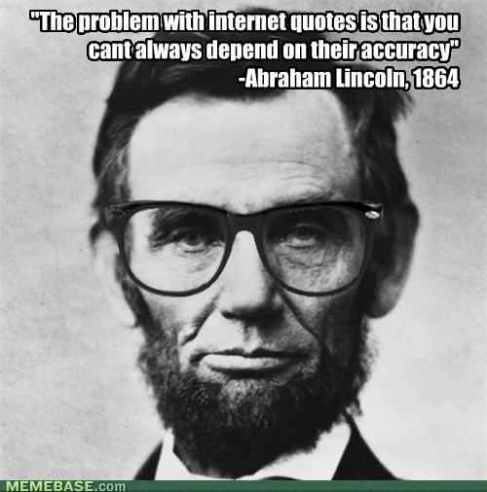First, I have to say that I love Wikipedia. You know the quote from Alice in Wonderland, “Why, sometimes I’ve believed as many as six impossible things before breakfast”?
Well, sometimes I’ve looked up as many as six random things on Wikipedia before breakfast. I’m a curious person! I just like to know how things work. With that being said, I really wish you could use Wikipedia as a source in research.
But wait! Along comes “Wikipedia: Friend, Not Foe” by Darren Crovitz and W. Scott Smoot (shout-out to Dr. C!) Okay, so they don’t necessarily tell you to use it or to allow your students to use it as a sole source of information, but they do give awesome guidelines for how it can be appropriately used in the classroom. They explain an assignment done in a classroom where a topic was given (Abraham Lincoln) and the students collectively made a list about what they knew about him. This gave the students an idea about what not to focus on. They then looked through the Wikipedia entry to look for something they did not know that they found interesting, or places where there seems to be a gap, which allowed for more research to be done.
One important feature of Wikipedia is “citation needed.” I have noticed this before, and most of the time I feel the information is fine. What I think is important to point out is most students, especially high-schoolers, have pretty good intuition. They’ll know if something seems strange. I can always tell when someone writes something on Wikipedia like, “taylor swift is stupid” or “Tyler Swift wuz born in Nu Zeeland” that they don’t know what they’re talking about. There are always exceptions, though, and sometimes people make good guesses that just aren’t correct.
Finally, I’d like to end with this very fitting image.



